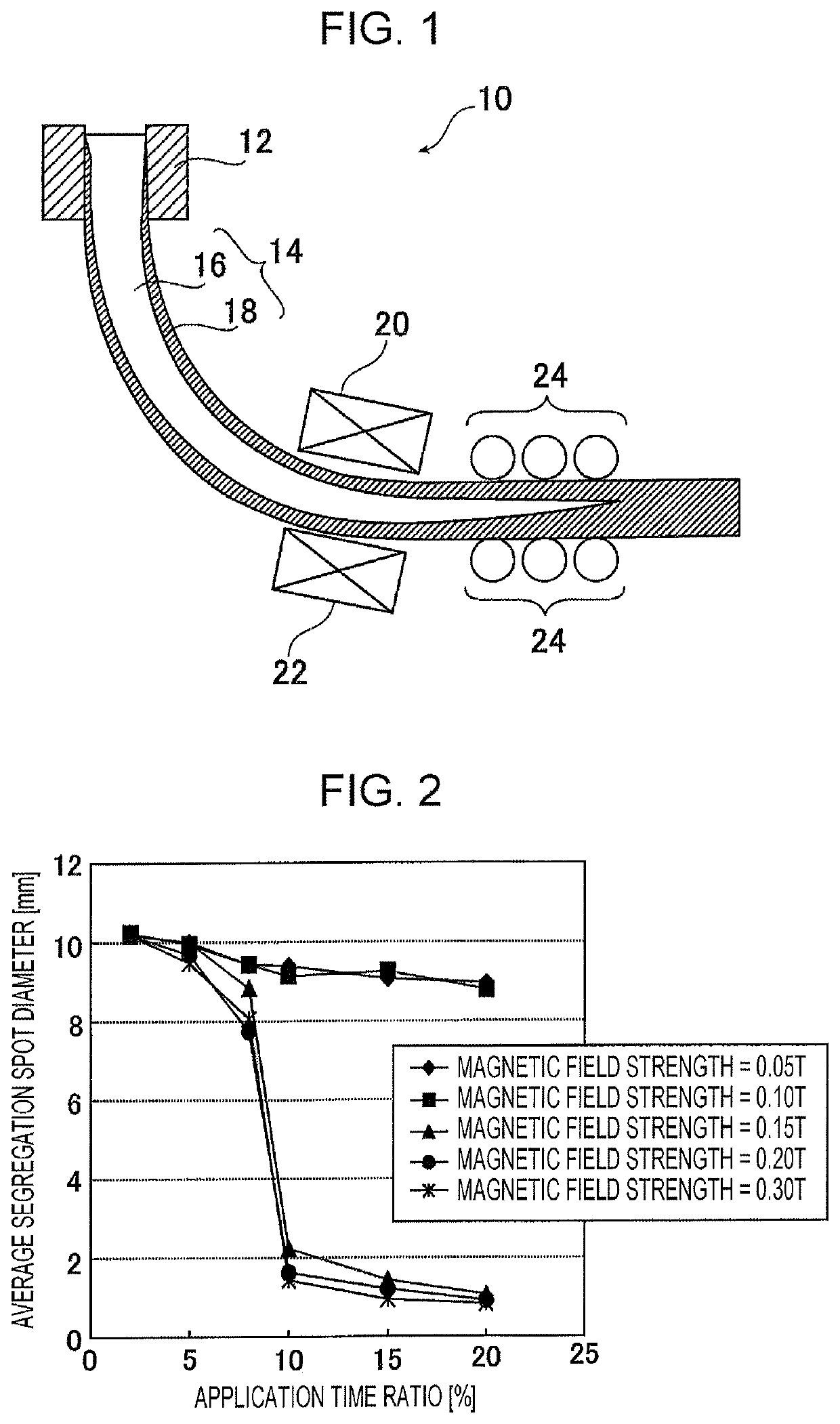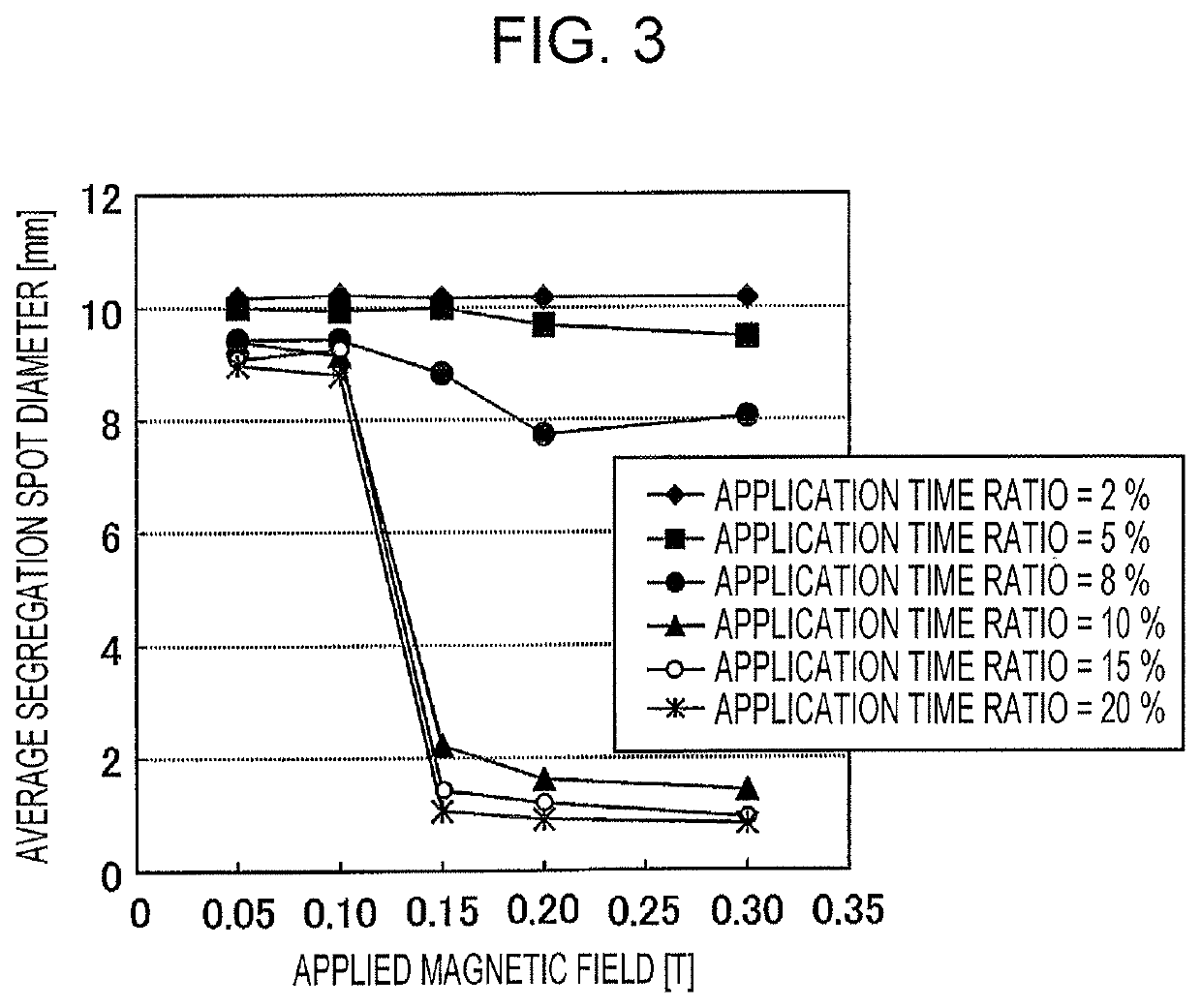Continuous steel casting method
a casting method and continuous steel technology, applied in the field of continuous steel casting methods, can solve the problems of insufficient technology disclosed in patent literature 1, the probability of a breakout due to insufficient thickness of the solidified shell significantly increases, and the average segregation spot diameter of the solidified structure of the strand is reduced, and the centerline segregation of solute elements is reduced
- Summary
- Abstract
- Description
- Claims
- Application Information
AI Technical Summary
Benefits of technology
Problems solved by technology
Method used
Image
Examples
examples
[0052]A strand was continuously cast by using a bloom continuous casting machine, which has the same configuration as the continuous casting machine illustrated in FIG. 1 and in which the line length of the continuous casting machine is 19.9 m and the radius of curvature thereof is 15 m. With the continuous casting machine, strands having a thickness of 250 mm and a width of 410 mm in terms of cross-sectional size can be cast. The components of the molten steel poured into the mold included the following: carbon, 0.7 mass %; silicon, 0.2 mass %; and manganese, 0.9 mass %. The strand withdrawal speed was 0.8 m / min, and the degree of superheat of molten steel (temperature of molten steel−liquidus temperature) in the tundish was 20° C.
[0053]Static magnetic field generation devices were installed at positions corresponding to a region where the solid fraction fs at the thickness-wise middle position of the strand is 0.24 to 0.30. Continuous casting was performed at various application t...
PUM
| Property | Measurement | Unit |
|---|---|---|
| magnetic field | aaaaa | aaaaa |
| temperature | aaaaa | aaaaa |
| width | aaaaa | aaaaa |
Abstract
Description
Claims
Application Information
 Login to View More
Login to View More - R&D
- Intellectual Property
- Life Sciences
- Materials
- Tech Scout
- Unparalleled Data Quality
- Higher Quality Content
- 60% Fewer Hallucinations
Browse by: Latest US Patents, China's latest patents, Technical Efficacy Thesaurus, Application Domain, Technology Topic, Popular Technical Reports.
© 2025 PatSnap. All rights reserved.Legal|Privacy policy|Modern Slavery Act Transparency Statement|Sitemap|About US| Contact US: help@patsnap.com


